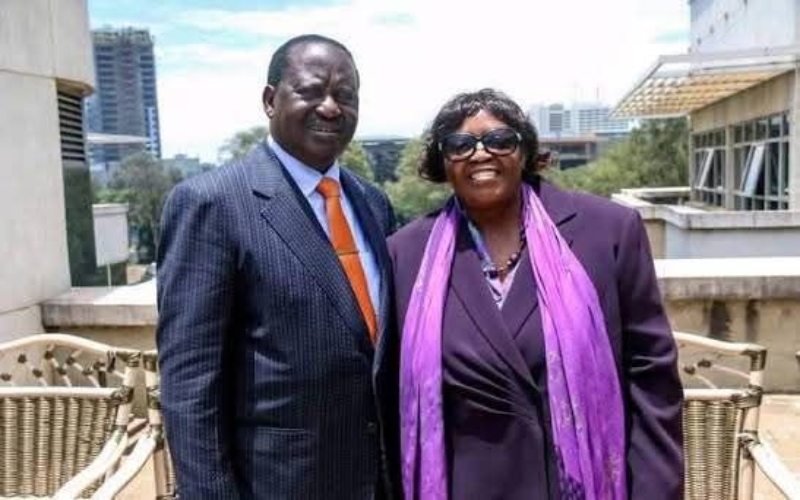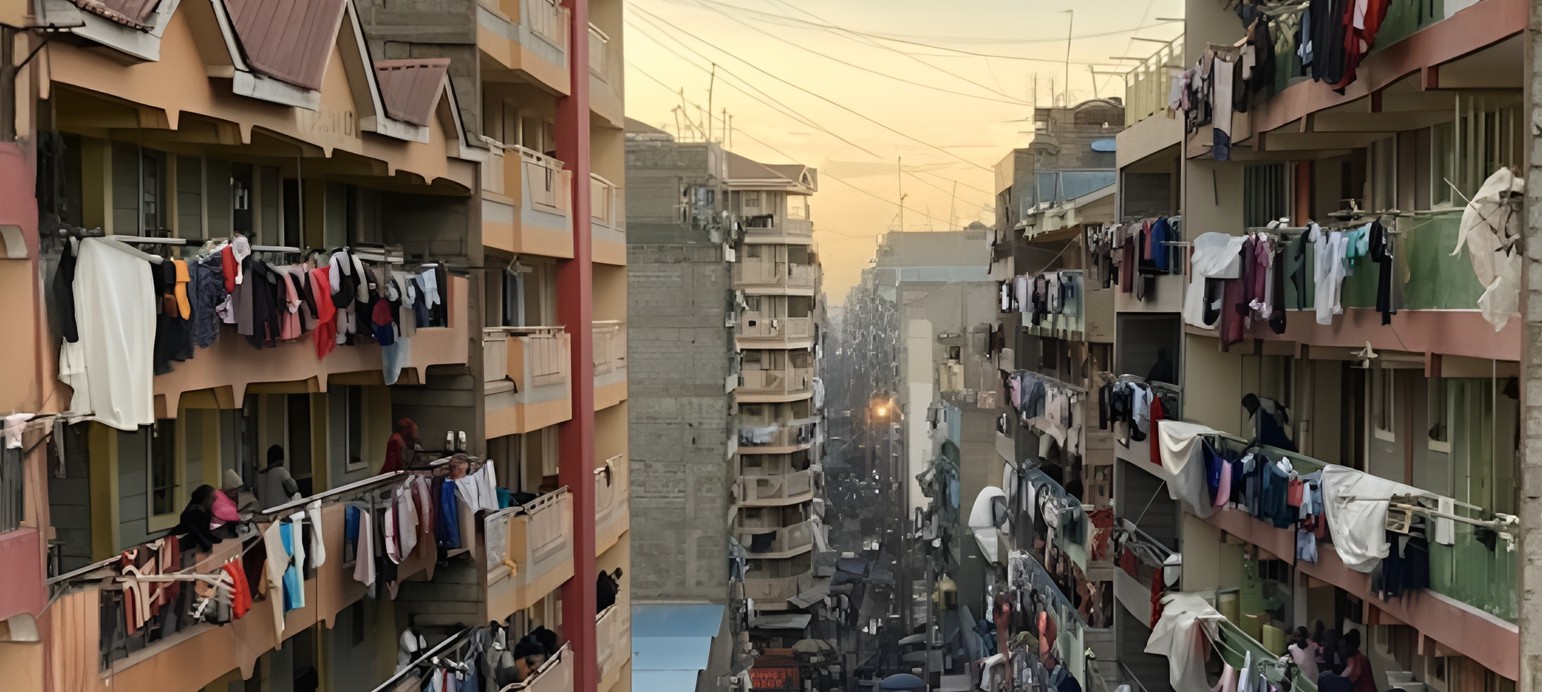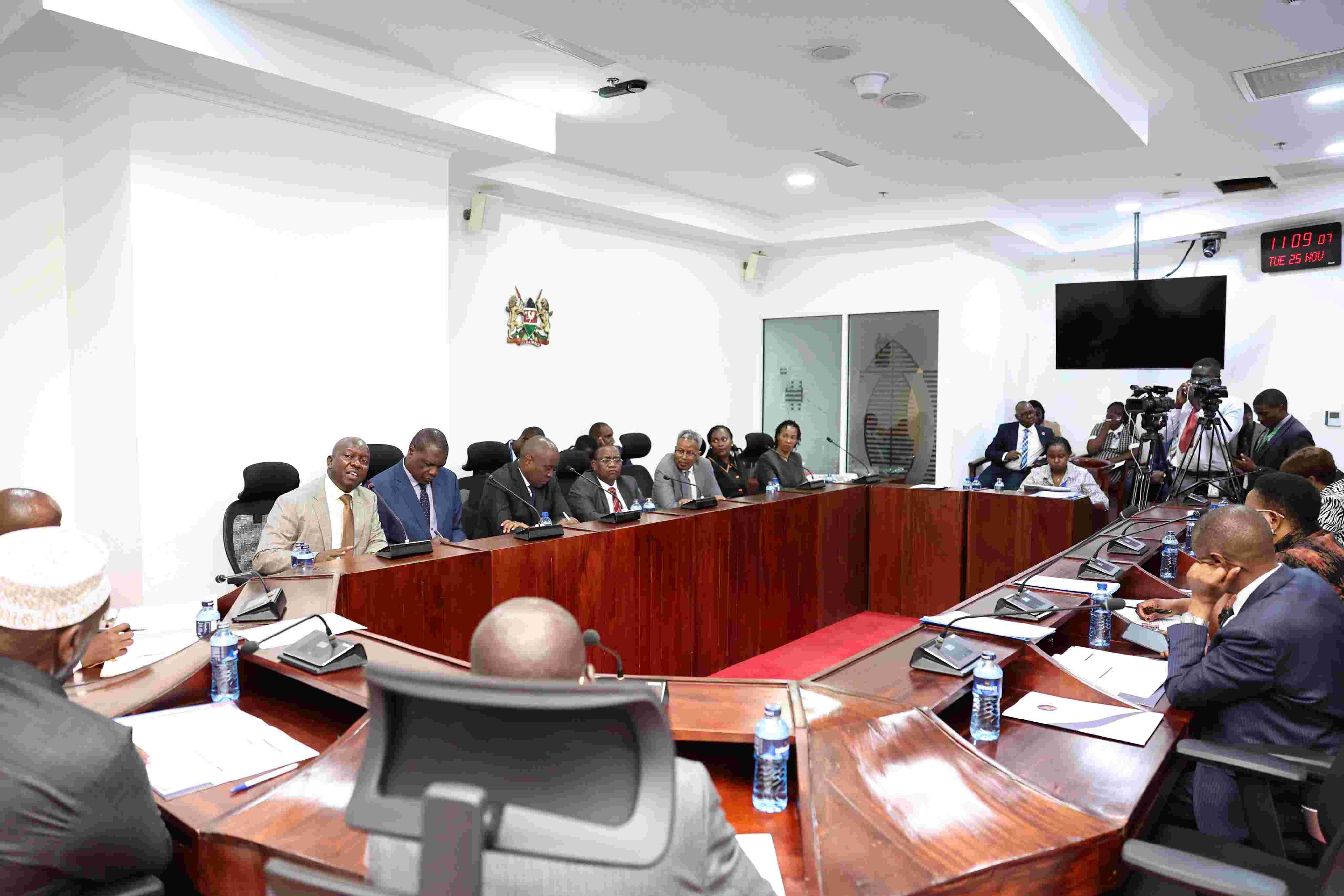KRA boss given 7-day ultimatum to appear before MPs over Sh64bn revenue loss

According to documents submitted to parliament, the government lost Sh16.5 billion in revenue in 2022 due to the misdeclaration of 233,000 metric tonnes of crude palm oil.
The Kenya Revenue Authority (KRA) Commissioner-General, Humphrey Wattanga, has been summoned to appear before the National Assembly’s Finance and National Planning Committee within seven days.
He is expected to explain the mis-declaration of Sh64 billion in revenue by the Louis Dreyfus Company (LDC) as part of the edible oil scandal.
More To Read
- Businesses granted 30-day relief on long-stay container charges at Mombasa port
- Meta to deduct 5 per cent tax on Kenyan creators’ earnings in 2026
- National Treasury says weak revenue, high debt repayments straining Kenya’s budget
- Government shifts cargo clearance to Nairobi, Naivasha in bid to decongest Mombasa Port
- KRA’s official X account hacked, public warned against fraudulent posts
- High Court rules in favour of KRA in Sh1.1 billion tax dispute, orders fresh tribunal hearing
The committee, led by Molo MP Kimani Kuria, issued this ultimatum, warning that failure to appear could lead to punitive measures.
Wattanga had previously committed to attending the meeting but failed to do so, despite an earlier promise made last week.
Initially, the Commissioner requested to delay his appearance until November 26, 2024, claiming he was unavailable until then.
However, the committee criticised this as an indication of his ineffectiveness in a crucial role responsible for revenue collection.
Ainamoi MP Benjamin Lang’at, the committee's Vice Chairperson, expressed concern over the situation.
“As an oversight arm of the government, this committee directs that the KRA management appear before this committee on Tuesday next week without fail or face the necessary sanctions. It is a criminal matter that the country could be losing trillions in taxes through misdeclaration of goods,” he said.
Lang’at highlighted the severity of the issue, saying, “It is unfortunate we are struggling to raise revenue while the country is losing money, and those with the mandate fail to appear to answer concerns. We don’t need to borrow when we can raise billions through taxes.”
Baringo South MP Benjamin Makilap accused the Commissioner General of showing disrespect to the parliamentary committee.
“I cannot believe that KRA can have the guts to tell us to postpone the meeting and even dictate to us when to appear. For them to suggest that they appear on November 26, 2024, is basically to push this matter to next year,” he stated.
Makilap also questioned the misdeclaration process, saying, “If you import refined oil and when it reaches the port of Mombasa it is crude, then you must tell us at what point did it go back to its original state.”
Kitui Rural MP Bonnie Mwalika expressed frustration at KRA’s perceived lack of transparency in the tax evasion scandal.
“We want to know who the directors of the two companies are, their shareholding, and the beneficial owners. Saying they will appear here after two months when the same things are happening is a no,” he said.
LDC-Kenya Limited, a significant player in the edible oils market, operates in Mombasa and has a growing presence across East Africa.
It is one of the major importers of palm oil products for regional millers and refineries and runs one of the largest oil seed storage facilities in the region.
According to documents submitted to parliament, the government lost Sh16.5 billion in revenue in 2022 due to the misdeclaration of 233,000 metric tonnes of crude palm oil.
In 2023, the loss increased to Sh32.54 billion from 387,868 metric tonnes. In 2024 alone, the government has already lost Sh13.83 billion from 163,567 metric tonnes imported.
Wattanga previously appeared before the committee on September 24, 2024, to discuss whether LDC Asia PTA Limited and LDC Kenya Limited evaded taxes by mis-declaring palm oil cargo shipments.
However, the meeting could not proceed as he arrived with bulky documents that the committee had not yet reviewed.
As a result, the session was adjourned to allow the committee time to process the information.
The palm oil cargo imported from Malaysia and Indonesia—the world’s top palm oil exporters comprises six types: RBD Palm Olein, RBD Palm Stearin, Crude Palm Kernel Oil, Crude Palm Olein, Crude Palm Oil, and Palm Fatty Acid Distillate.
The committee found that LDC mis-declared these products in two ways.
In one instance, the product was blended with 60 per cent crude palm oil and 40 per cent refined palm oil and then declared as crude palm oil.
In another, refined products were declared as crude palm oil to evade the 35 per cent import duty, which amounts to USD 500 per tonne.
The importation also incurs an Import Declaration Fee (IDF) at 2.5 per cent, a Railway Development Levy of 1.5 per cent, and a Value Added Tax (VAT) of 16 per cent. For imported refined palm oil, a 35 per cent duty is charged, while semi-refined palm oil attracts a 10 per cent duty.
The committee had requested KRA to provide details on the total cargo volume of palm oil imported by LDC Asia PTA through the port of Mombasa from February 23, 2023, to June 26, 2024.
They sought information on the volumes of various palm oil types, including RBD Palm Stearin and Crude Palm Olein, as well as the total taxes and fees paid during this period.
The committee also required copies of all import declaration documents, including port health reports and bills of lading, for the 120 cargoes of palm oil imported by LDC Asia PTA between the specified dates.
Additionally, the committee sought information on the consignees of all palm oil cargo volumes imported during that time and details about taxes and fees paid by other companies involved in the importation of palm oil products.
Top Stories Today
















































